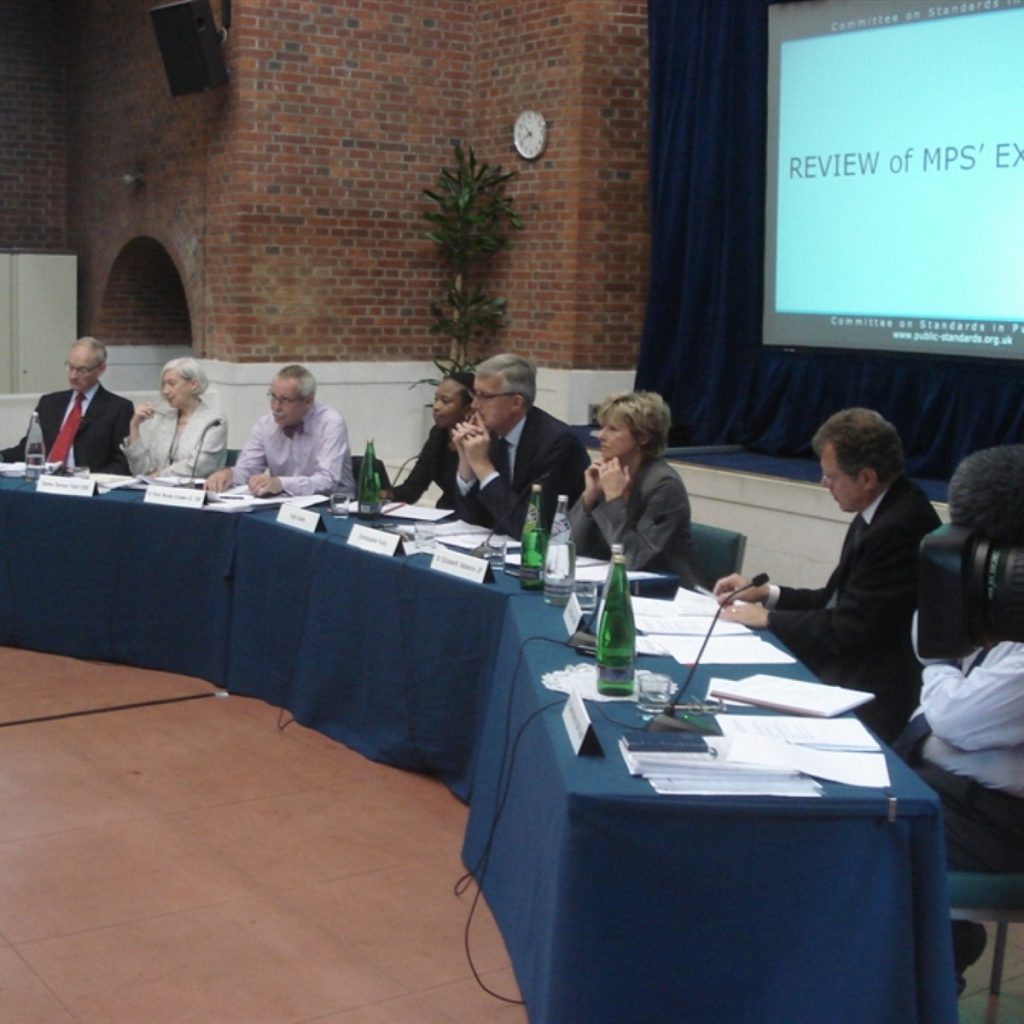The anatomy of a public inquiry
By Tony Hudson
It seems like an inevitability of British politics: whenever a scandal reaches a certain size a public inquiry cannot be far behind. Whether it's corruption in the civil service, a poorly designed bridge collapsing, murder, or a war, inquiries have been a staple of the British system for over a century. The Leveson inquiry is the latest in a long line, and its impact has still yet to be fully realised.
But how exactly do they work? Here's a few home truths about this often misunderstood tool.
By definition, they are reactionary


A public inquiry is never called for without context. They are always in response to a major event. Yesterday, a discussion on public inquiries hosted by the Institute for Government (IfG) featured speakers who had important roles in the Iraq inquiry, the inquiry following the Soham murders and the Leveson inquiry. All of those were reactions to major scandals.
They are driven by the public and the media
Considering inquiries deal with large scale scandal, it is most often the case they will be called as a result of mounting public pressure. Naturally, this can sometimes be a cause for concern for those in power.
"Mine was an inquiry the government didn't want to have," Lord Butler said of the Iraq inquiry he began chairing in 2004.
"They were really forced into it by the fact that George W Bush set up a commission in the States."
The sheer scale of the outrage over Iraq and the political situation Blair had been put into by his partner in the coalition of the willing meant that he could no longer avoid an inquiry into the lack of weapons of mass destruction. After all, if nobody was complaining what politician in their right mind would order themselves investigated?
Time is of the essence
Due to the reactive nature of public inquiries, time is a great factor in the process of putting one together. Lord Bichard, who chaired the Bicham/Soham inquiry, said it was important for them to be completed quickly – without losing effectiveness.
"A balance has to be struck between doing it in a considered way and making sure it's done as quickly as possible," he told the IfG.
"If you take too long with inquiries, by the time you report people have probably lost interest in the issue."
This was also the case with the Iraq inquiry. Lord Butler remembered he was in Mexico when the call came. He was told, somewhat cryptically "Your country needs you again". When he returned to England, his photograph was already in the tabloids reporting on the inquiry.
Getting a result quickly was urged in this case as well, although the government had somewhat ulterior motives for urging expediency. It had elections in mind.
"It was intensely political. The US commission was told not to report for a year. It was put off until after the [2004] presidential election, but we were told to report in five months so that it would be gone and forgotten by the 2005 general election," Butler said.
As a result, they are somewhat improvisational
Due to the time constraints which come along with inquiries, in addition to the fact no two are the same, setting up an inquiry is often a case of using one's best judgement. Lord Bichard said the preparation he did when looking at previous inquiries was more to see what not to do than it was for any positive guidance.
In the case of the Iraq inquiry, Butler described the original government plan to feature a member from Labour, the Conservatives and the Liberal Democrats on the panel, but the Lib Dems had no interest in participating and the Tories withdrew after only three weeks. The Leveson inquiry started off as a panel, according to Rowena Collins Rice, but soon became a single judge inquiry.
The nature of inquiries changes almost constantly.
In the end, they are seekers of truth
When dealing with major political scandal, it is an understandable temptation to claim there is partisanship afoot, yet the three veterans of infamous inquiries who spoke yesterday were adamant about their purpose. The facts speak for themselves.
"We didn't think that Blair was lying when he said he believed Saddam Hussein had weapons of mass destruction. The intelligence community believed he did," said Lord Butler when discussing where the facts had led him over the course of his inquiry.
"What the government was not frank about was the quality of the intelligence," he added.
They cover ground across government a select committee inquiry simply can't
Some may ask why public inquiries are necessary when parliamentary select committees can carry out their own investigations.
"There is a limit to how effective select committees can be", said Collins Rice.
"An inquiry often covers multiple government departments whereas select committees are limited to just the one".
They're worth it – probably
Despite the struggles associated with public inquiries – communicating the findings effectively with the public was one mentioned – the overall conclusion was there is definitely a need for them in British political life. Bichard described his inquiry as one of the best things he has ever done. Despite Butler's description of his experience as "very intense" and "emotionally draining" he said he would be willing to chair another in the right circumstances.
The experiences of those who have participated in inquiries seem to demonstrate why they have become a staple of the British system. Are they worth it? It would appear so.









